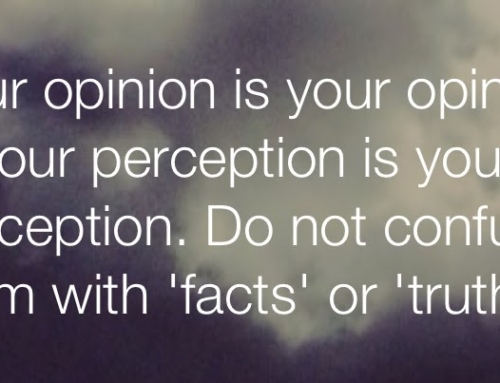
‘Santa’s Portrait’ byThomas Nast, published in Harper’s Weekly, 1881
The holidays are rolling around and if you live in a Christian-centric culture, chances are you are facing the onslaught of Santa (even though Santa has nothing to do with the Christian religion). Santa is everywhere and it has become somewhat sacrilege to not have children that “believe” in Santa. Yet, many moons ago, my husband and I made the active decision not to raise our kids with this believe. My son is only just 3 and thus has very little awareness of it all, but my daughter is 8 and has never believed Santa is a real person.
This means we get a lot of flack from people who don’t know us or our daughter. We get accused of being cruel. We are told we’re ruining her imagination. We hear how she will somehow suffer as she looks back at some lost childhood from not believing.
I would like to take this moment to tell you how absolutely, ridiculously wrong these people are in case you, too, are thinking of going this route. I should say, though, that if you choose to do Santa with your kids, that’s wonderful! I have no problems with that whatsoever and for many people, believing was a cherished part of their childhood. For others, finding out the lie was devastating. I don’t know which way individual children will go, but for us it was just the right thing to do in our house. The following are the rebuttals to the many issues that have been raised in response to something that apparently is as bad as feeding children a diet solely of McDonald’s.
The Issue of Imagination
Folks, imagination is being able to imagine things that aren’t real. It’s not believing in something that you think to be real. When I think about my husband or children or even an older ancestor I may not have met but I have a picture of and know the history about, I’m not really using my imagination. I’m just thinking about something I think is real.
However, my daughter is as into Santa as she can be. She shouts for him at parades, says hi to all the Santas she sees around, talks about him as if he’s real (e.g., the other day she asked, “I thought Santa was nocturnal?”), and so on. She knows he’s not real, but it doesn’t stop her thinking about him and the stories she hears. In fact, given she knows it’s not real, she is arguably using more imagination than those who believe because she’s not tied to a given narrative.
The Issue of Magic
So many people equate believing in Santa with the magic of Christmastime. Half of these people seem to no longer find it magical now that Santa isn’t real whereas the other half still find it magical despite knowing Santa isn’t real. In my mind, if Santa is the only thing that makes Christmas magical then you’re doing it wrong. There is so much magic that can be a part of this season, especially when the focus becomes about giving to others and bringing joy to people around you, friends, neighbours, and strangers. This is what we try to focus on during this season, not a fat man who decides if you’ve been good enough for gifts. That’s not magical for us.
The Issue of Childhood
I have actually had people online suggest not doing Santa ruins a child’s childhood. All I have to say to this is: Do you tell this to Jewish families? Muslim families? Families around the world who don’t live in cultures that celebrate Christmas? Do you really believe their childhoods are “ruined”? If so, then I really don’t think anything I can say would change your mind. If not, think about why my child would be different. I will also add here that my daughter loves being a kid. She’s one of the few I know who has no desire to be older. She just loves every bit about childhood. Even without believing in Santa.
One more thought: Even if believing in Santa added to your childhood, what about the rest of the year? Does that count for nothing in the grand scheme of how we look back at our younger years? I would certainly hope so.
The Issue of Good and Bad
One of the reasons we struggled with Santa was the inherent behaviourist messages that children are bombarded with. Even though we would never put the “good or bad” label on our child with respect to getting something at Christmas, we knew that unless our daughter knew that it was false from the start, there was a good chance some of that would seep into her understanding and belief. When something that is supposed to be magical and about giving to others has shades of controlling children with threats, it’s just not something I feel the need to embrace. I do know lots of people that try to talk about how all kids are good and there’s no naughty list, but this can raise even more questions for kids that often leads down the path to understanding Santa is fiction.
The Issue of Credit
One of the other reasons we struggled was financial. We never have had a lot of money and what we do spend on our kids we would like them to know came from us, thank you very much. Knowing that we have provided what we can at the holidays is important and knowing that just because they don’t get the same things or as much as other kids (though more than many too) doesn’t mean there’s any difference in value between them and others. I remember the taunts in school that Santa must have liked some kids more than others. The heartbreak when a much-desired toy never came for some. Removing that altogether is something I feel good about.
One of the comments we often get is fear-based from other parents. They worry my daughter will “ruin” things for their kids. Folks, my child doesn’t believe in Santa. That doesn’t mean she’s a dick. Somehow we again don’t seem to worry about children of other religions ruining it (or do we?) and we seem to be fine when our kids believe something others don’t or vice versa when it’s not a giant fat man who breaks into your house at night. (Religion anyone?)
When your child is raised not believing, it’s very easy to explain that some kids still believe so to let them keep going. In my experience as a child, it was when people figured it out that they suddenly had to share it with their friends. So it’s probably not the kids who never believed that you need to worry about, but the kids who did and then discovered the truth.
***
All in all, there’s really nothing much different about our Christmas than many others. We don’t have a ton of gifts from a pretend person, but that’s okay. We do focus on doing good for others at this time because we know it’s up to us, not an imaginary man. And the thing is – lots of families who do believe do this as well. The point is not that we’re somehow better, but that all the dire statements simply don’t come to pass and should be ignored as the ridiculous items they are. Do what works for you and hopefully focus on the idea of joy and sharing. After all, that is the part that holds the most magic.






So much yes to this. My husband and I have struggled with his to approach this since our first was born a little over 5 years ago. Both our kiddos are very smart and we haven’t played up the Santa aspect of Christmas, but we haven’t given them a solid explanation of the holiday. This is just reassurance that we are not alone in our thoughts on the whole Santa deal… So, thanks 🙂
We di Santa but you make so really good points!
*do
Thank you. I needed this! I’m planning to be honest with my son (now 2) but have been starting to worry that he wouldn’t enjoy Christmas as much and that maybe I would be robbing him of something.
I remember finding out about Santa and feeling upset that my parents had lied to me. I don’t want him to feel that way and I don’t want to lie to him. I just hope he doesn’t feel like he’s missing out. We will still do the whole Santa thing, but just as pretend.
Hi Tracy, thanks for your article :)this is very relevant in our house this Christmas as my daughter is 18mths, and next year may understand a little about Santa – which means the discussion has been happening this year.
In your house, do you still have Santa stockings and leave out milk and cookies, or have santa photos, or not partake at all? I enjoy the Santa part of christmas, but have a problem with the lie. I thought approaching it like a pretend game might work e.g. “mum will pretend to be santa” but my dad thinks that would complicate things, especially if she is surrounded by kids who believe. I just wondered what you think – is it better to opt out completely?
I love this because we don’t believe in Santa Clause either and my oldest (9) didn’t even know who he was until her friends started school. We have all the same thoughts plus one more. The only thing different is that we shared that Santa is real and shared the story of St. Nick not Santa Clause as a guy dressed in red living in the north pole with elves.
My siblings and I were raised not believing in Santa. We celebrated the birth of Jesus and learned about the spirit of Santa. We were also taught to let other kids believe and to let that be between their parents and them. My siblings and I still loved Christmas and had a wonderful time regardless of Santa. Santa was just another fun tradition for the Christmas season. I will be 29 this year, and my husband and I plan on doing the same thing with our children (we are expecting our first next year!). You go, mama! You know what is best for your kids!
Just randomly looked up a specific question and this popped up. Tracy this is just down to earth and not using terms that are being so freaking extra or dictionary like.